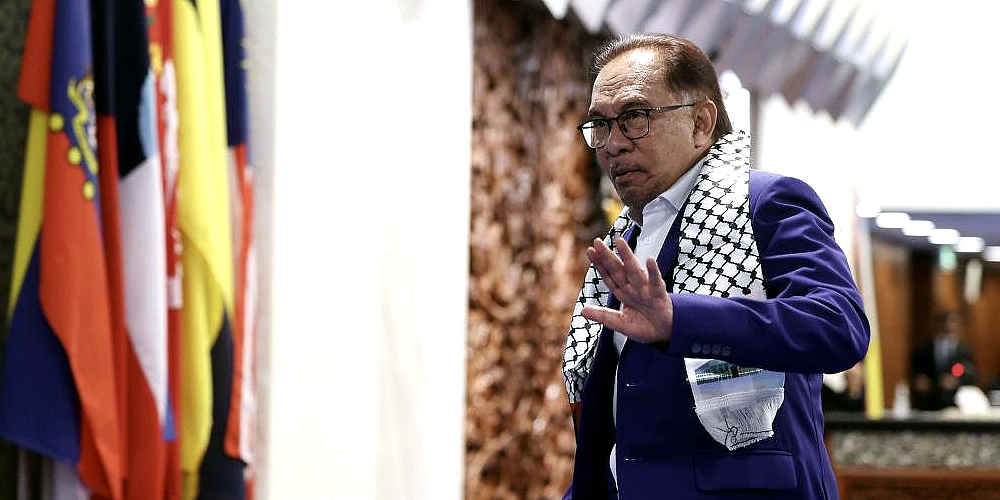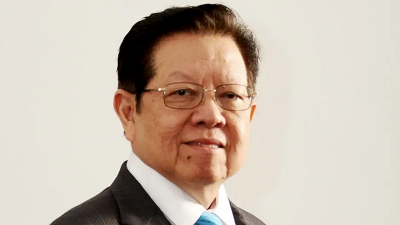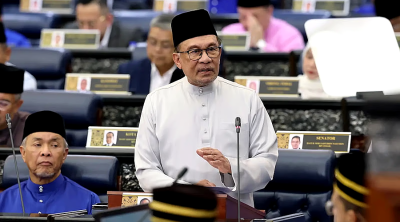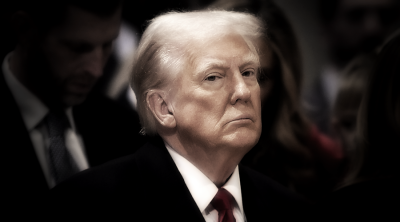
With the Israel-Palestine crisis taking prime attention of late, there is heavy reporting of Prime Minister Anwar Ibrahim’s comments and position. Malaysians are witnessing a foreign policy dilemma.
The Israel-Palestinian crisis is much more complex than US-China competition for primacy within the Indo-Pacific region. Malaysia got it right through taking a neutral position between the two superpowers.
The Palestinian issue is an extremely emotional one, especially within the Malay cohort of voters that Anwar will need to win over next election to survive as prime minister.
The domestic effect of any stand upon the Israeli-Palestine crisis will influence party politics and support.
Anwar recently made the revelation that he was threatened by certain “western” powers’ for his outspoken advocacy for the Palestinian people, and to refrain from criticism of Israel.
Dr. Musa Mohd. Norden, a well-known supporter of Anwar, directed protesters last week in stop showing placards that criticized Israel and its leadership, at a rally last week. This was met with much anger by net-citizens.
There is every chance this was to appease Malaysians, and put them behind Anwar.
Anwar is also heavily criticized for declaring “Palestine Solidarity Week” in schools across Malaysia.
The Sarawak government has stated they will not comply with the directive in their schools.
There is fear that such a program will provide an unbalanced view of the conflict and only build up unnecessary hate. Some critics go as far as saying this is a sign of a crack in the Unity coalition.
Anwar recently admitted that the war will get worse, and it is difficult for him to do anything. He would if he could. Under different circumstances Anwar could have.
Paradox is becoming dilemma
Over the last two decades, Anwar has developed close relationships with leaders and policy-makers across Europe and the United States.
Anwar has also kept close relationships with the leaders of the radicalized Islamic would.
This flows from his days of his presidency of the ABIM Muslim Youth League, which was strongly influenced by the doctrines of the Muslim Brotherhood, at the time.
Anwar has a strong rapport with a number of leaders across the world.
On paper, this should have provided Anwar with the unique qualification of being able to talk to, moderate, advise, negotiate, and/or act as a go-between all parties concerned with the conflict.
This would be something akin to what Henry Kissinger did during past conflicts within the MENA and Indo-China. Kissinger won the Nobel Peace Prize in 1973 for his would on the Paris Peace Accords, which influenced the end of the war, bringing peace to Vietnam.
However, Malaysia’s long held anti-Israel position diplomatically, which Anwar inherited from past administrations has prevented Anwar playing any role in bringing peace to the region, due to Malaysia’s inability to talk directly with Israel.
Sadly, Anwar is prevented from making a great contribution to ending the crisis.
Instead, the only real takeaway from Anwar’s latest MENA trip was a commitment to Saudi Arabia to support their bid for the 2034 World Cup.
International focus on Malaysia
The result is that Malaysia has been attracting undue attention it really doesn’t need.
The international press has portrayed Malaysia as a partisan party towards Hamas, where the Malaysian government is one of only three governments that recognize Hamas.
Stories about the training of Hamas operatives in Malaysia, have given the impression that Malaysia has and is supporting terrorism.
It may not be long before journalists write stories about foreign terrorists using Sabah and Kelantan as training and safety-zones from conflicts in neighboring countries.
This is not the attention Malaysia should be attracting. However, the failure to condemn all violence in the conflict, may lead to incorrect views about Malaysia.
We are already seeing some EU displeasure with Malaysia, and hope this will not overflow into trade relations in the future.
The lesson here is for Malaysian foreign policy itself. If Malaysian foreign policy had been kept relevant with the times, Anwar would have been in a position to play a major role in the crisis.
This is an opportunity lost.

(Murray Hunter has been involved in Asia-Pacific business for the last 40 years as an entrepreneur, consultant, academic and researcher. He was an associate professor at Universiti Malaysia Perlis.)
ADVERTISEMENT
ADVERTISEMENT








































